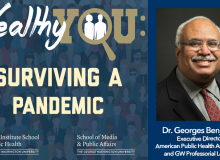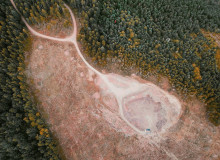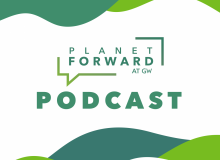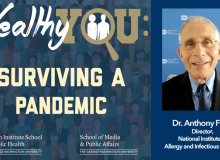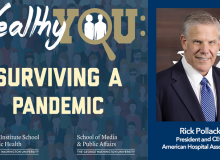Public Health
Polluted air and rivers have acute local health effects and changing rainfall and temperature patterns cause global disruptions in supplies of food and clean water. Learn what is being done to mitigate the impact.
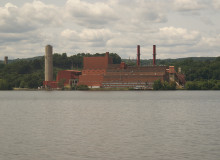
A view of the Danskammer Generating Station in Newburgh, N.Y., as seen from a train traveling on the other side of the Hudson River. (TomKonrad/Creative Commons)
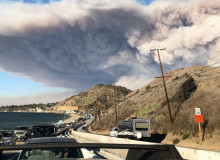
The smoke plume from the fast-moving Woolsey Fire encroaching on Malibu on Nov. 9, 2018, as residents evacuate along the Pacific Coast Highway. (Cyclonebiskit/Creative Commons)

Lancaster Central Market in Lancaster, Pennsylvania, faced drastic customer reductions at the beginning of the pandemic, resulting in the closure of several stands, and yet most still endure. (Jared Kofsky/PlaceNJ.com/Creative Commons)
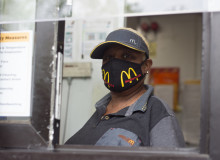
Restaurant employees — often low-wage earners with no employer-provided health insurance — were deemed "essential workers" during the pandemic. (Paul Sableman/Creative Commons)

